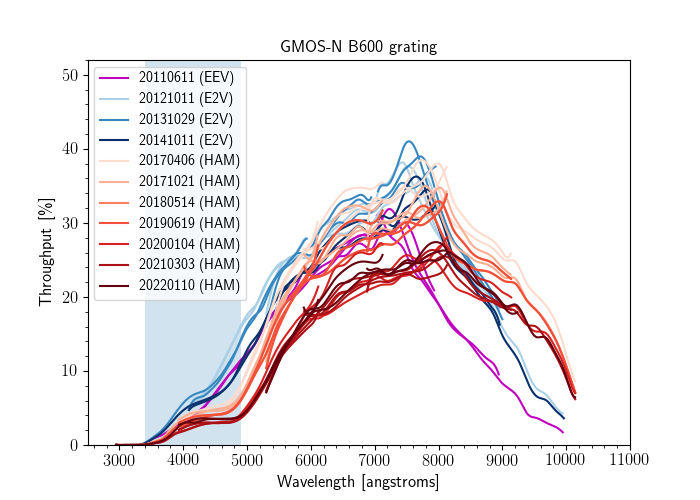Switch to conda-forge for installing data reduction software
STScI has recently announced that it will end support for the main Astroconda channel, used for installing Gemini data reduction packages, on 1 February 2023.
23A Programs and Schedule Announced!
Gemini 2023A observing programs and schedule have been announced!
Notification emails were sent to successful PIs on December 15, 2022. Please check the schedules page for more information.
Note that the latest version of the Observing Tool is required to access and update 2023A programs.
2023 Call for Letters of Intent to submit a Large and Long Proposal
Letters of intent are now solicited for new Gemini Large and Long Proposals, to begin in semester 2023B. Letters are due by February 13 2023, and full proposals by April 1 2023. See the Call for more information.
2023A OT Update Available
An updated version of the 2023A Gemini Observing Tool is now available. This update is required to access the Gemini Observing Databases.
The Installation Instructions are linked on the Observing Tool web page, and we recommend that everyone download their programs from the databases rather than import from saved XMLs.
See the the Release Notes for a complete list of changes.
On GMOS-S MOS data reduction: fixing MDFs
After the GMOS-S detector troubleshooting earlier this semester, the physical location of the array has shifted by a small amount in the -direction. While this did not have harmful consequences, the Y-shift has the effect of the MOS mask slits as defined on the MDF appearing with a small (~20 pix) yet systematic offset with respect to the actual location of the spectra.
November 2022 Call for Proposals
Gemini South is accepting proposals for the Fast Turnaround (FT) program. We are not currently accepting proposals for Gemini North. Here, we give information specific to this proposal cycle.
Reduced blue sensitivity of GMOS-N B600 grating
It has recently been noticed that the sensitivity of GMOS-N B600 observations at wavelengths blueward of 500 nm is significantly lower than predicted by the Exposure Time Calculator. Historic data of spectrophotometric standard stars show that this reduction in sensitivity is largely attributed to a decrease of the B600 grating response, which started to develop around 2013 to 2014.

September 2022 Call for Proposals
Gemini North and South are accepting proposals for the Fast Turnaround (FT) program. Here, we give information specific to this proposal cycle.
2023A Call for Proposals Released
Gemini is now accepting proposals for observing time in Semester 2023A. The submission deadline varies with participant. A new version of the Phase I Tool (PIT) has been released to support proposal submissions.
PyRAF on Python 3
Following some collaboration with the "IRAF Community" project earlier this year, we are pleased to make available PyRAF 2.2.1, the first version to pass all our testing on Python 3. This runs roughly as fast as the Python 2 version, thanks to improvements by Ole Streicher.
This version is already included on the new IRAF VM for Apple machines (see yesterday's announcement). On Linux, it can be installed by specifying "python=3.7" instead of "python=2.7" in the "conda create" command -- see: